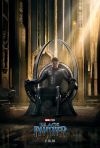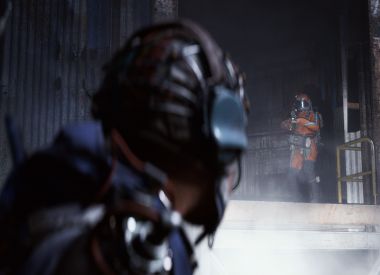Good people can do bad things and it’s never too late to act on your mistakes. Paternal relationships are the vehicle for this relatively simple message in Black Panther, and it’s one that is also all too relevant to the identity politics of the 21st century. Ryan Coogler challenges audiences to move past willful blindness or guilt and actively seek another perspective, while ironically delivering the comic book escapism the world deserves.
The story begins with the death of T’Chaka in Captain America: Civil War. His son, T’Challa, fresh from completing the Wakanda tribal tradition of becoming Black Panther, comes to learn what everyone realizes in young adulthood: your parents aren’t who you perceived them to be. Perhaps burdened with the responsibilities of being king, as T’Chaka tells his son in the afterlife “It’s hard for a good man to be king,” T’Challa’s own morality comes into question once he discovers his father has left behind a devastating secret.
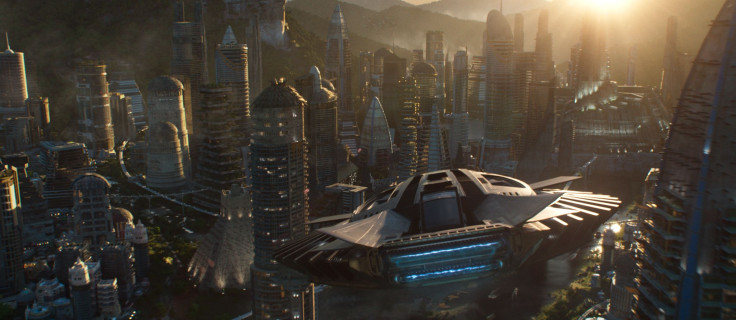
Believing his father has laid down the groundwork for his newfound Kingship, T’Challa learns it won’t be as simple as following in his father's footsteps. When he meets Killmonger, he’s forced to confront the idea that even a country untainted by colonialism is not perfect. There’s moral conflict in Wakanda’s isolationism. The nation’s people are willfully blind to the fact that sharing their wealth and culture with others could combat oppression and help build a more just world. Turns out, this alternate reality of “what could have been” has its own share of moral predicaments as well.
Marvel’s first successful, complex villain helps T’Challa understand there is more than one way to continue Wakanda’s legacy. While T’Chaka kept Wakanda safe for decades by keeping its people away from the West, T’Challa must accept the fact his father’s intentions were good despite his lapse in judgement under the most fragile of circumstances. The guilt of his father’s mistakes doesn’t hold him back from doing the right thing, either. T’Challa chooses to reject his father’s message that good men can’t be kings.Instead of worshipping T’Chaka and grieving his death, T’Challa chooses to right his father’s wrongs and help Wakanda evolve into something greater.
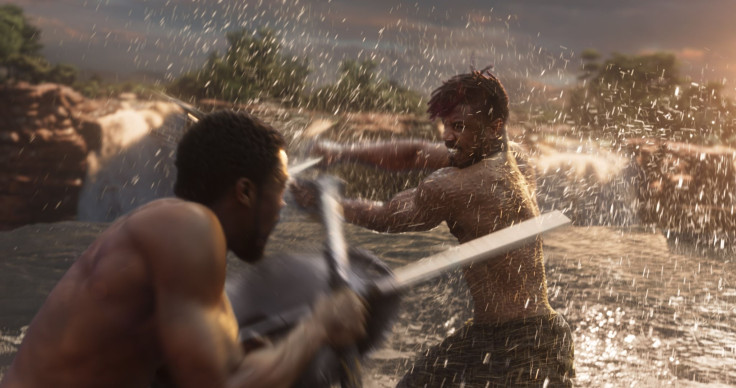
The story’s thoughtful consideration of individual morality and personal responsibility separates Black Panther from the average, formulaic Marvel fare. It's more of a backwards parallel to reality that presents an inescapable irony. Wakanda may secretly be the most wealthy nation in the world, yet its rulers and citizens choose, again and again, to leave brothers and sisters behind. While rich in black excellence, proud in heritage and drowning in wealth, Wakanda’s influence doesn’t trickle down to the rest of the African continent. It takes Killmonger, an outsider with Wakandan blood, to help T’Challa realize Wakanda is basically a club for the one percenters.
Killmonger’s motivations parallel those of revolutionary groups during the civil rights movement and today. He represents those forced into chains and left behind to live in a society built upon a foundation of systemic prejudice. He’s the villain in this story, but simultaneously a hero in his own right. He practices violence and extremism, but for a worthy purpose. He just wants to level the playing field, and is ready to die to complete that mission. Unlike in other comic book movies, this villain succeeds. It’s what makes a movie like Black Panther -- set in a fictional place so inconceivably out of touch from our own reality -- feel so human and grounded.
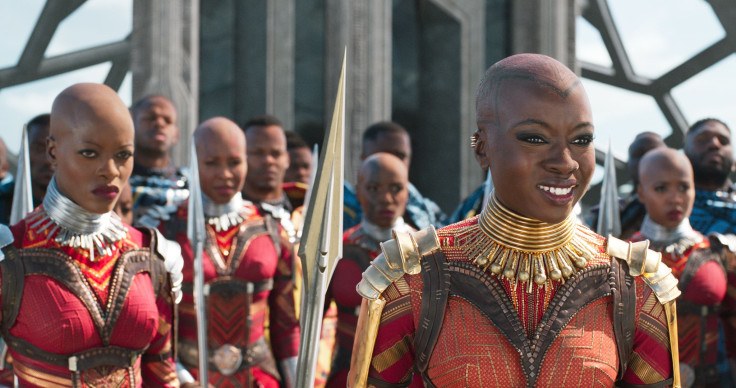
T’Challa isn’t the only character who makes Black Panther stand out as one of Marvel’s best films to date. Remember that scene in Wonder Woman where Diana runs through no man’s land, then jumps into the tower to take out the final sniper? That powerful, prideful feeling of unrestricted femininity exists throughout the entirety of Black Panther. From the very first moment, we’re introduced to a place where beauty and love exist outside the confines of appearance. Romance is defined by companionship and contains the sort of trust that allows members of the opposite sex to intellectually challenge each other and grow as a unit.
Black Panther transcends the very idea of inclusion by representing blackness as a foundation rather than an afterthought. It’s perhaps the biggest Hollywood blockbuster where execs weren’t obviously filling a diversity quota. But once you're able to get past the delight of an all black cast, there’s nuance. Wakanda is a world where blackness isn’t just one identity and gender isn’t strictly defined. Each tribe has their own tradition, culture and way of life, but every Wakandan is united by their common ancestry and shared humanity. Black Panther celebrates emotional intelligence and tackles culturally relevant issues, but, more importantly, sets an example of finding the courage to be the change you want to see.

